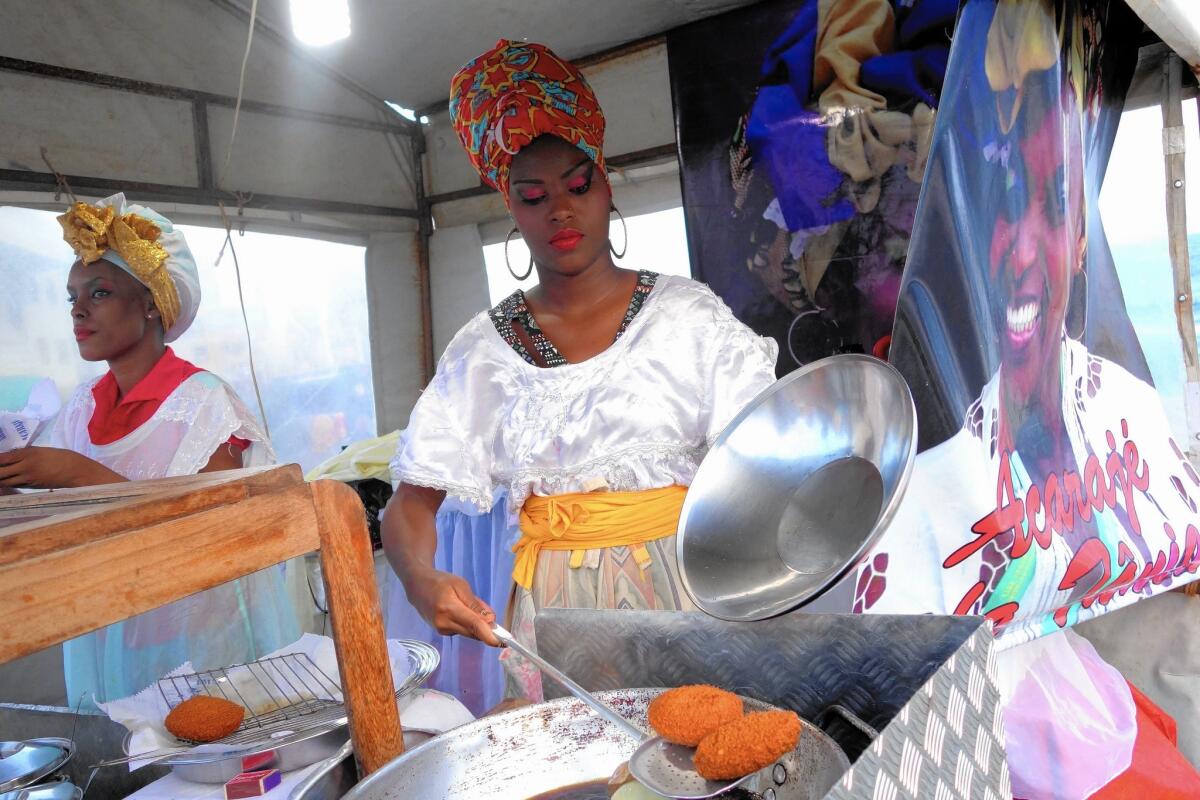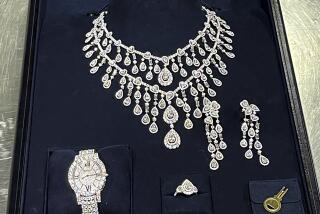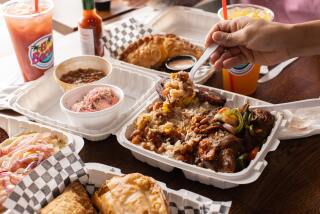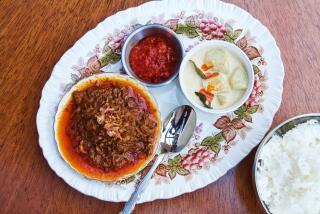A small fried bean patty plays a big role in Brazil’s links to Africa

Like many others in Bahia state, the center of Afro-Brazilian culture, Ana Cassia Pereira grew up eating acaraje, a snack of fried bean patties stuffed with shrimp and spices.
But she had only a vague picture of how the food, which she now sells in a small stall near the beach, connects her to ancestors and contemporary West Africa.
“Before searching on the Internet and doing research and finally taking a course on our food, I had no idea they still eat acaraje in Africa,” said Pereira, decked out in the traditional white dress of purveyors of Bahia’s cuisine. The dish came to Brazil from Africa, where it is known as akara and is eaten for breakfast or as street food in Nigeria.
“It means ‘ball of fire’ in Yoruba,” she says proudly, explaining, as she does daily to customers, its history. “And it became a ritual dish in our culture here.”
As Pereira and partner Barbara Pereira Capistrano (no relation) drop the balls of dough into boiling palm oil, residents, workers and tourists stroll up to order and ask questions. They are steps from a 16th century fort that helped establish the Portuguese colonial power that inadvertently brought the dish here. Nearby, children romp barefoot, seeking to sell chewing gum or cookies to the stream of passersby along the coast.
“My mom told me once that this food had something to do with Africa,” said Marcio Silva, 13, after persuading someone on the street to buy him an acaraje with all the fixings, including fiery Bahian chile paste. “I had no idea that people over there eat this too, or what it meant.”
Many here have long appreciated the role African culture has played in Brazilian identity, especially in Bahia. But a lot of the connections to Africa were lost or obscured by time and systematic racism, and are only now being rediscovered and remembered.
Food, especially acaraje, is a large part of the process of remembrance.
Pereira’s grandmother was an adherent of Candomble, the syncretic and pluralistic Afro-Brazilian religious tradition. Specifically, she honored the Orisha, or spirit entity, Iansan, and the preparation and consumption of acaraje was a crucial part of her rituals. The recipe was passed down through family.
At 16, Pereira attended a course in the traditions and history of the region’s food at SENAC, Brazil’s national culture education service. Over her life, she said, she has seen public attitudes to her culture change radically.
“Other people used to pass by in front of me or my mom, laugh and yell, ‘Hey, Candomble, are you going to cast a spell and make me sick?’” she said, referring to a misunderstanding of Afro-Brazilian traditions as a kind of malevolent witchcraft. “That has slowed down. And I was shocked that, when all the gringos came during the World Cup, they actually tried’ it [acaraje]. It must have been because of the tourism photos the government published.”
The making of acaraje has been declared a protected part of Brazil’s cultural heritage by the government. And Pereira and Capistrano say they proudly wear their traditional dresses in nearby modern bars and nightclubs.
Many Nigerians have at best a vague idea that local food made its way to Brazil.
“I used to eat akara all the time,” Akinola Davies Jr, a video producer who grew up in Lagos, said from London. “But I only found out we shared similarities with Brazilians in my teens, after my mother got the chance to visit Brazil.”
Brazilians have incorporated a derivative of the Yoruba language’s name for the snack, but it is called by other names and eaten by other communities in West Africa. In Brazil, women stuff the fried bean cake, sliced in two, with vatapa and caruru, pastes made from nuts, onions, okra, coconut milk and palm oil, under the shrimp.
As the sun began to set over the city and the rush began for acaraje and assorted sweets known as cocadas, Pereira said it would be un-Brazilian to pick one part of her heritage and deny others.
“I wouldn’t say I’m Catholic, and I wouldn’t say I practice Candomble either. I believe in everything. God, everything.”
A young man, trying some of the sweets for the first time, said he was surprised by the onion, and asked whether it was normal. It is, Pereira said, and agreed to offer him something else.
“Someone like him would have never tried my grandmother’s food, and my grandmother would have never tolerated someone questioning the taste. She would always say, ‘How can someone teach us what we already know?’” Pereira said as the man walked away.
“But I’ve learned recently that even though it’s our culture, there is much history still to be learned.”
Bevins is a special correspondent.
More to Read
Sign up for Essential California
The most important California stories and recommendations in your inbox every morning.
You may occasionally receive promotional content from the Los Angeles Times.










